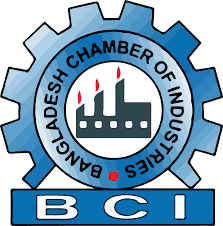The Bangladesh Chamber of Industries (BCI) has strongly criticised the proposed increase in Value Added Tax (VAT) on e-commerce sales, warning it could severely impact small and medium enterprises (SMEs).
BCI President Mr. Anowar-Ul Alam Chowdhury (Parvez) expressed concern that the VAT on e-commerce sales has been raised from 5 percent to 15 percent in the proposed national budget.
“This hike will be a severe blow, particularly to emerging SME entrepreneurs. We urge the government to reconsider and reduce the VAT back to 5 percent,” he said during his reaction to the proposed budget.
Chowdhury noted that revenue generation appears to be the primary focus of the budget. “This budget is heavily dependent on corporate tax and individual income tax. Due to systemic limitations, the government’s revenue base remains narrow,” he remarked.
While the budget aims to reduce inflation, promote business-friendliness, and generate employment, the BCI leader expressed skepticism about the feasibility of these targets.
He also criticised the increase in VAT on raw materials for large manufacturing industries, warning that it would raise production costs. “I don’t see how this will help reduce inflation,” he said, adding, “Everything seems to be done following the IMF’s formula. If we continue down this path, industries will incur losses.”
Chowdhury further pointed out several challenges already facing the industrial sector, including high production costs, elevated fuel prices, soaring bank loan interest rates, and inadequate fuel supply.
He also expressed concern over the gradual reduction in cash incentives for export-oriented sectors, particularly garments, which he believes could erode Bangladesh’s export competitiveness.
The VAT on cotton yarn and man-made fiber at the production stage has been increased from Tk 3 to Tk 5 per kg. “In the current fuel crisis, this will hurt domestic spinning mills and increase reliance on imported yarn,” he warned.
According to BCI, the proposed budget also raises taxes on raw materials in key industries. The steel industry will face 15–25 percent tax on raw materials, while VAT on raw materials for the cement industry is set to increase from 5 percent to 15 percent—moves that are expected to drive up construction and housing costs.
The turnover tax has also been increased from 0.6 percent to 1 percent. Chowdhury said this will disproportionately affect the country’s industries, especially the CMSME sector. “We urge the government to reconsider this increase.”
On a positive note, the BCI president welcomed the proposed allocation of Tk 100 crore for young entrepreneurs and Tk 125 crore for women entrepreneurs, calling it commendable.
He also called for proper and full utilization of sector-specific allocations, especially in health, education, infrastructure, energy, and electricity.
“The implementation of the budget must be subject to strict compliance. If funds are not released in time or remain underutilized, the benefits will not reach the economy or the people,” he concluded.

